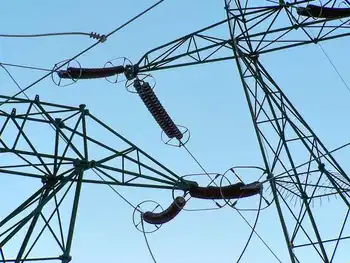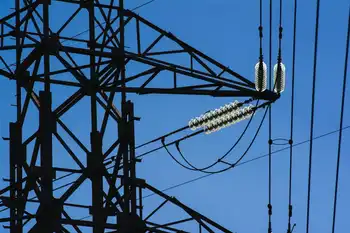New Brunswick open to adding more lines
By The Chronicle Herald
NFPA 70b Training - Electrical Maintenance
Our customized live online or in‑person group training can be delivered to your staff at your location.

- Live Online
- 12 hours Instructor-led
- Group Training Available
But New Brunswick Energy Minister Jack Keir says that doesnÂ’t prevent Nova Scotia or Newfoundland or anyone else from building a transmission line across New Brunswick.
In a conference call with The Chronicle HeraldÂ’s editorial board, Keir was trying to clarify some details of the controversial memorandum of understanding that the New Brunswick government signed with Quebec.
ThereÂ’s concern that Hydro-Quebec is putting one over on New Brunswick, in much the same way it got the best of Newfoundland decades ago in the Churchill Falls hydroelectric development in Labrador.
If the proposed deal goes ahead as planned at the end of March, the New Brunswick government will sell NB Power to Hydro-Quebec for $4.75 billion, which equals the amount of NB PowerÂ’s debt that the government is carrying on its books.
In addition, power rates for large users will immediately be reduced by 30 per cent, and a new mid-sized category of business will have its rates cut by somewhere between 17 and 25 per cent. And residential users will have their rates frozen for five years. The combined savings on industrial and residential power rates for New Brunswickers over five years is expected to amount to $5 billion.
The other Atlantic provinces have expressed concern about Hydro-Quebec hogging all the transmission space in New Brunswick, thus preventing them from competing with Quebec to sell electricity to the lucrative northeastern U.S. market.
The New Brunswick government says, however, that it is not opposed to even partnering with Nova Scotia Power to build a separate transmission line. But such a line would have to make business sense, Keir says.
Likewise, he says, the New Brunswick government is still "absolutely committed to green renewable opportunities" in New Brunswick, even though cheap hydroelectricity from Quebec makes it difficult for more costly green power projects to make the grade.
"As IÂ’ve always said, the business case is going to have to work or folks are going to have to understand there is going to be an impact in a negative way to their electricity rates," Keir says. "You canÂ’t have both."
Either the green power pays for itself, at a competitive price, or ratepayers will be asked to subsidize development of renewable energy by paying higher rates.
The addition of wind-generated power was a priority for the New Brunswick Liberals when they took power three years ago, Keir says. By the end of next year, the province will have two wind farms producing a total of 400 megawatts of electricity.
One is the regionÂ’s largest wind farm, which is already in operation at Kent Hills, and the other, bigger wind farm is being built on Caribou Mountain.
In the future, Keir says, the New Brunswick government could tell Hydro-Quebec it wants an additional 400 megawatts of wind power on the grid and it would be up to Hydro-Quebec to figure out how much it would cost. New Brunswick would then decide whether to proceed with such a plan.
Keir says that no matter what others are saying about Hydro-Quebec calling the shots in New Brunswick, the provinceÂ’s regulatory system still gives the government full control over energy policy.
But in spite of all that explaining, the level of skepticism about the deal is still very high. That likely wonÂ’t change soon.











